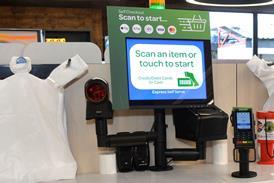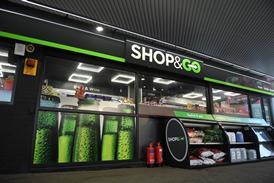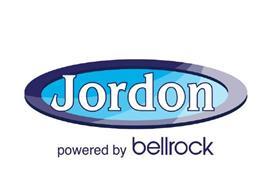When retailer Ron Perry realised his two petrol stations in Hartlepool were in urgent need of modernisation he had one small problem: how to pay for the work.
After shopping around the banks, he got a recommendation from a business associate to try a new specialist broker called Forecourt Finance. After explaining the situation to the broker’s owner - director Stephen Rennie, Ron got the answer he was after. The funding was there for the £1m project, all he had to do was sign up.
Two years later and independent retailer Ron has two revamped sites - including 24 new Tokheim pumps, a new canopy, revamped c-stores with air conditioning, kitchen equipment such as cookers, griddles and fridges, a hot drinks offer with a Simply Coffee machine, and ATM machine - all funded with the help of Teeside-based Forecourt Finance. Ron, who’s been in the forecourt business all his life since taking over the business from his father, says: "It was much easier to go through Forecourt Finance than a bank. When you go to the bank you have to do all the leg work. But Stephen finds the best deal from all his funders, checks the terms and conditions and makes sure you’re not getting over-charged. His business specialises in forecourts so he understands how it all works. I don’t like leasing because at the end of the day the assets don’t belong to you." Ron’s sites are the Ron Perry and Son A19 Services North, and Services South.
== Funding success ==
Forecourt Finance was started by Rennie two years ago - it is a trading arm of his main broker company Corporate Financial Services UK Ltd. Previously working for one of the biggest brokers in the UK, Rennie says he decided to set up on his own and now has 43 funders and suppliers. As well as the general banks, which he prefers not to name to protect his business, they include companies like Northern Forecourts, Tokheim and Simply Coffee. The company has about £6m a year in funding.
Rennie says: "A lot of brokers don’t have the amount of lenders I have and hardly anyone in this sector uses their own bank these days. Banks are reluctant to lend against a canopy or storage tanks because if anything goes wrong they can’t go in and get the products back because they have no future value. So there’s no security for lenders - unlike if they’re lending money for a car. If a retailer wants to borrow money they contact me and say what they want to buy - for example four Tokheim pumps worth £50,000. I then get detailed accounts sent through, along with bank statements from the last three months and a copy of the quotation for what they are buying, I do a proposal and contact the relevant lenders. Most deals will be agreed within three days, some of the more straightforward ones only take a few hours. Once agreed, I speak to the retailer about how much it’s going to cost them each month, and email the documents to the funder. The retailer pays the supplier directly."
According to Rennie, who gets commission from funders, the rates of interest vary but for fuel pumps the rate would be about 4.5%. Forecourt Finance has grown largely through word of mouth - it has gained funding for about eight retailers so far - and Rennie sees much potential in the sector. He says: "I think a lot of people out there who are looking for finance deals will be in limbo at the moment. About 20% of our total business is forecourt finance and that is growing. Most of our deals are about £200,000 to £300,000 minimum." Although no retailers have used the company yet to fund the purchase of a new site, there are facilities in place.
It’s not just smaller retailers who need help with funding. Top Indie HKS Retail has used the Alliance & Leicester for many years to help develop its business and buy new sites. Shane Thakrar, head of business development at HKS, says: "When we want to buy a site we identify what it should be valued at and the guide price. We then approach the bank and run through it with them. We draw up a projection sheet, stating what we think are the projected profits. We are in a good position because we have established ourselves and the bank is comfortable with us but in the past it was much harder."
According to Shane, the bank views the site and comes back with a list of questions. HKS also gets a valuation done independently, looks at any environmental issues and provides backdated wet-stock history. Shane adds: "Lending to forecourts used to be a bit of a grey area for the banks but as the independent area has grown they have become more familiar with it. Our bank manager has been with us for years, and really it all depends on how well the banks understand the business. It’s interesting how many banks have contacted us, wanting to lend us money. How things have changed! But fuel retailing is quite a stable industry these days and many banks are being told to lend a certain amount to help get the economy going."
== Acquisition trail ==
HKS has used the Alliance & Leicester since day one. Shane says: "We’ve dealt with just about every other major bank over the years but we’ve stuck with Alliance & Leicester and now it is very keen to lend. In fact, it is writing to us asking, ’When are you looking to buy another site?’"
Leicester-based HKS, number nine in the Top 50 Indies listing, bought its first site in 1999, when getting forecourt finance was "a very different procedure". It completed the acquisition of the Clocktower site from BP in 2000 - it previously had an operating lease on the site in Coalville, Leicestershire - and it hasn’t looked back since. It now owns 23 sites.
Shane says: "It was basically reinventing the wheel for the bank when we first approached them. It wondered why we wanted to buy the site and it took a lot of persuasion. The important thing is to be spot on with your projections. You’ve got to have a certain amount of your own money too of course. But the banks are keener than ever to deal with the sector."
Nick Pulley, the Alliance & Leicester’s regional director for the East Midlands, confirms that the bank - part of the Santander Group - is very active in lending to, and supporting businesses in all sectors. In the forecourt sector it mainly deals with site acquisitions, improvements and c-store development. He adds: "The forecourt sector is an area in which we have experience, and we’re always looking to support sensible business plans. "
According to Pulley, the bank asks for a business plan and gives help with expectations. He says: "Forecasts and cash flow analysis are very important. Cash flow is the vital part for us, that’s the thing the bank will focus on. It’s the cash that will repay the debt - it’s the lifeblood of the business. A forecourt will need to buy fuel and restock its shop, and needs to have a strong idea of how quickly fule and products can get turned into cash."
HSBC encourages its retailers to stay in regular contact. An HSBC Commercial Banking spokesperson says: "A good banking relationship is critical and will help guide retailers on the range of financial solutions available - ranging from small business loans and specialist franchise products to equipment finance - which will suit different businesses depending on their circumstances and requirements.
"Through our network of relationship managers and specialist advisers we are working in partnership with our customers throughout the petrol industry to provide advice and relevant financial solutions."
For those looking for an alternative route to finance they could always approach another retailer. MRH (GB), number one in our Top 50 Indies list, recently announced it was looking to provide finance to retailers wishing to acquire sites. John Lynn, MRH’s managing director, says the company has had its first "significant" finance deal. Although reluctant to reveal too many details, he says it concerns one independent retailer looking to buy two sites. Lynn adds: "Retailers can approach us with whatever they’d like funding for. We’re happy to look at this on a case by case basis. It’s one large independent funding another independent.
"There’s probably reticence from dealer groups not to borrow from us. But from our perspective it just makes sense - not only do we have cash reserves but we had the facilities set up before the credit crunch."
----
=== the right approach ===
Put together a strong, realistic business plan before you approach the bank or lender. Identify any threats to the business as well as its strengths. Draw up forecasts for the business - where do you see it going?
Submit as much detail as you can on your cash flow analysis. How long does it take to turn stock into money?
Keep the bank updated on how the business is going, and stay in regular contact. Any potential problems, let the bank know. This will allow the bank to respond to any changes or challenges in the business. Nick Pulley, the Alliance & Leicester’s regional director for the East Midlands, recommends contact on at least a monthly basis.
And finally: Have confidence in yourself but keep it real. Pulley adds: "We’ll look at any sensible proposition."
Source: Alliance & Leicester























No comments yet